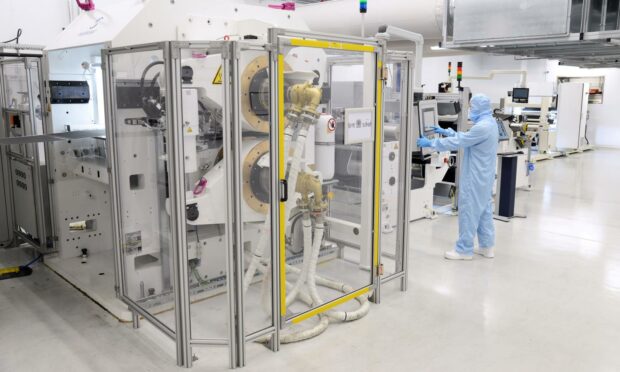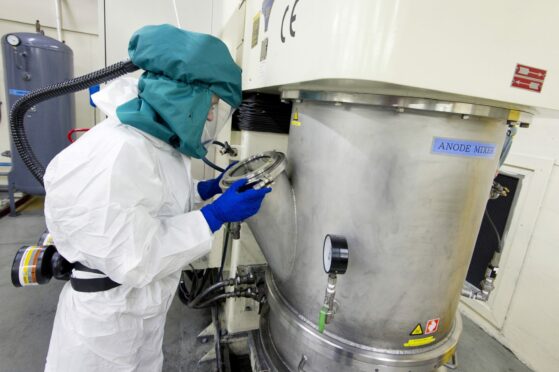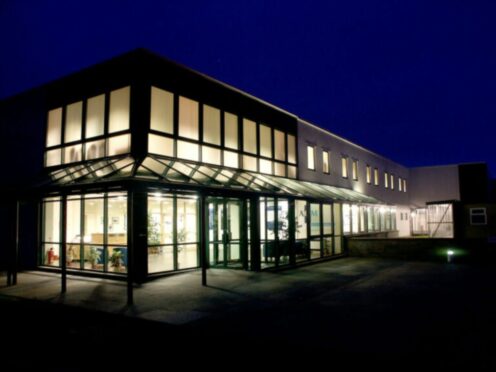AMTE Power has secured a £1million project to ‘power up’ its new generation of lithium-ion cells and manufacture them at scale.
The project will unite the Caithness-based company with Imperial College London’s battery modelling research and the manufacturing capabilities of the £130million UK Battery Industrialisation Centre (UK Bic) with the aim of bridging the gap from prototype to mass production.
AMTE was among the first UK battery makers to get involved with the UK Bic, which recently opened in Coventry to lead the development of the UK’s energy storage industry.
This latest funding and support package, via UK Government’s Faraday Battery Challenge, will support AMTE’s access to UK Bic’s assembly line while deploying Imperial’s research to highlight opportunities for cell improvement in both useable energy, lifetime, and cost within its “ultra high-power” (UHP) cells.
The firm’s current line of UPH cells are being developed with a number of specialist manufacturers in the automotive industry and will initially be targeted at the high-performance motor industry with further potential to target mainstream performance cars down the line.
Aiming for scale
Jeff Pratt, managing director of UK Bic, said: “Our national battery manufacturing facility is already beginning to scale up new cells and battery packs with client companies looking to set up manufacturing centres in the UK.
“We are thrilled to be working on the power up project to help establish the feasibility of manufacturing AMTE Power’s ultra high-power cells at volume. This is a great example of our ability to prove emergent battery products and real-world manufacturing scale up on behalf of our clients.”
Steven Farmer, head of technology and product development at AMTE, said: “This upscaling project will mark a huge step in the right direction in creating next generation batteries for electric vehicles in the UK.
“Many customer applications require cells designed with high energy density and higher charge rates than are currently offered by other cell manufacturers.
“Partnering with the specialist research team at Imperial College London will enable us to build on the energy performance of our ultra high-power cell and produce a more resilient battery to support our future zero-emission society.”
Step in the right direction to next zero
The AIM-listed company was formed in 2013 by chief executive Kevin Brundish and fellow directors Ian Whiting and Steve Farmer who acquired AGM Batteries, which produced conventional lithium-ion cells, from AEA Technology, a spin off from the UK Atomic Energy Authority.
The agency, which then operated the nearby Dounreay nuclear power station, has been credited with building the world’s first ever prototype lithium-ion battery.
Shares in the firm remain unchanged at close of market at 187.5p.


